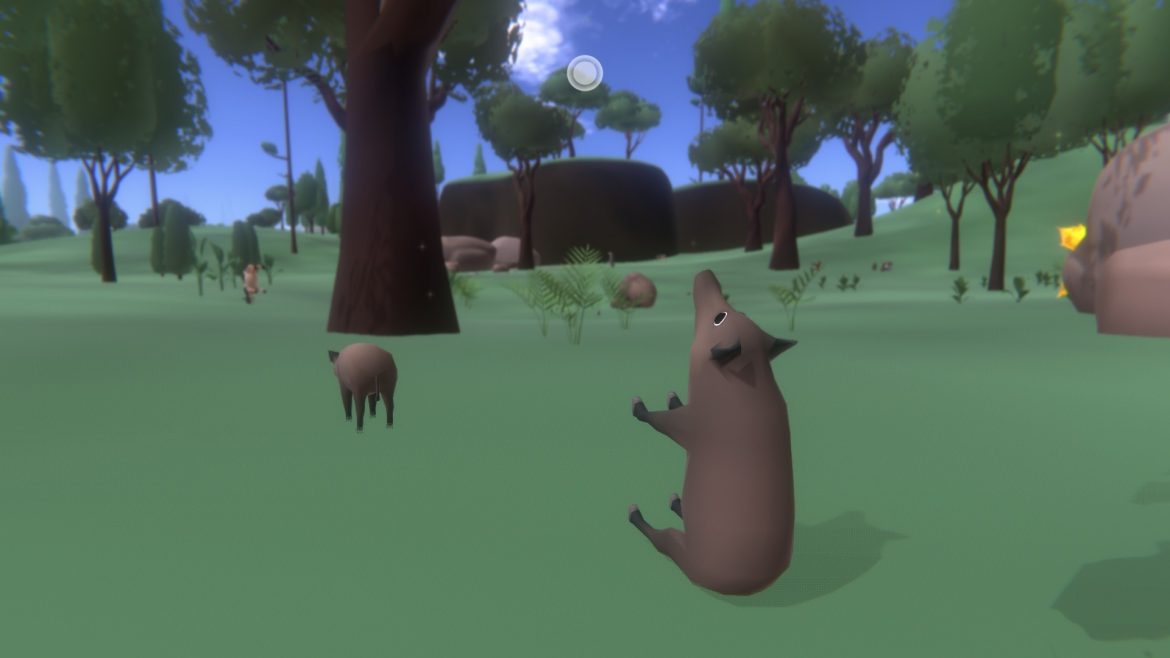Hello readers,
December is traditionally a good month for “festivities” but a slow month for “discourse”, with many critics, essayists and content-makers opting to take a little break or put out some sort of top ten list. Meanwhile, others chose to upload well-argued and hard-hitting video essays, flummoxing my attempts at circumscribing “a pattern” yet granting me the column content I crave. It’s a short one but a good one this month, is all I’m trying to say.
Also, in case you missed it, allow me to recommend Kris’s This Year in Videogame Blogging roundup, a thorough but measured critical snapshot of the 2021 that was.
This Month In Videogame Vlogging highlights the most compelling critical videos about videogames from the previous calendar month.
A Matter of Agency
A surprisingly common theme amongst December’s video selection is: what you can learn when you let the game pilot itself.
-
Whoops I still suck at gaming. – Laura Crone (23:05)
Alternatively titled “The Joy of Playing Games Wrong”, Laura Crone finds she can get away with more in (and in turn, get more out of) Astrologaster after initially (accidentally) playing through it by making choices at random. (Manual captions) [Embedded advertising]
-
Everything, Mysticism, and The Self – Cyril Focht (54:28)
Cyril Focht looks at how Everything goes about disrupting perceived boundaries of player autonomy by reading the game in parallel with Evelyn Underhill’s philosophy of mysticism. (Autocaptions)
-
Bandersnatch is Not an Interactive Film – John Battle (17:07)
John Battle argues that Bandersnatch is a more satisfying narrative experience when the viewer/player puts down the remote and lets the film make all the default ‘choices’. (Autocaptions)
Companies and Communities
Here, two (quite different) pieces explore the intersection of community toxicity with corrosive and harmful corporate cultures.
-
Roblox Pressured Us to Delete Our Video. So We Dug Deeper. – People Make Games (35:21)
In a follow-up to their first exposé (from August) on children’s game platform Roblox, Quintin Smith finds even more examples of the company’s disturbing systematic willingness to take a hands-off approach in pursuit of profit, leaving their young player- and creator-base vulnerable to exploitation both from other community members and the company’s profit model. (Manual captions) [Content warning: screencaps of abusive messages sent to children]
-
We should talk about the IGN Article, Bungie’s treatment of its employees & what we can do… – My name is Byf (21:42)
In considering revelations about sexism and bullying in Bungie’s offices, Byf spotlights the feedback loop of toxic community responses in sustaining bad workplace culture. (No captions)
In Search of Better Selves
Improvement of the self, or improvement of the robot friend? Both make for interesting (if only tangentially related, if I’m being honest) topics in this pair of essays.
-
Disco Elysium, Mental Illness and You! – Hyenas and Gin (34:44)
Emma highlights the way protagonist Harry’s relationship with Kim Kitsuragi gives the player an impetus to be a better person in Disco Elysium. (Autocaptions)
-
Upgrading ARTIFICIAL INTELLIGENCE in Open World Games – Upgrading Open World Games (30:37)
Rogier Postma gives a crash course in the barriers and possibilities faced by developers looking to create more dynamic NPC characters in open world games. (Manual captions)
Not Parable
Ways that fictional game worlds can portray and relate to the “real”, for better and worse, are examined in these next two thoughtful essays to round out December 2021.
-
Final Fantasy XIV’s Break From Narrative Tradition – Games As Literature (14:55)
The Games Professor outlines how Final Fantasy XIV’s various expansions take a more literal approach to storytelling than other (more allegorical) entries in the series, to engage players in themes of religious nationalism, colonial subjugation, and wealth inequality. (Autocaptions)
-
Replaying Call of Duty: Modern Warfare 2 – Illustrious Magic (41:33)
Steven Santana is not impressed with Call of Duty: Modern Warfare 2’s problematic approach to appropriating ‘real’ places, environments, and conflicts, in its careless pursuit of pastiche. (Autocaptions) (Transcript included)


